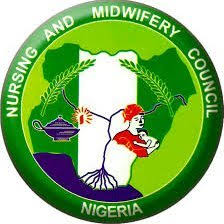Hundreds of thousands of pounds have been raised to send British patients to a doctor in America who claims he can "cure cancer". But Dr Stanislaw Burzynski's treatment has been dismissed by practitioners of mainstream medicine.
It looked like something out of Willy Wonka's factory. A room full of pipes and noise; a production process that flowed through steel tubes, steaming boilers and glass tanks of bubbling liquid.
But there was one striking difference from a chocolate factory - the whole room smelled of urine.
This is an industrial facility in Texas which produces the drug at the heart of Dr Stanislaw Burzynski's treatment.
He thinks the cure to cancer can be found inside our bodies, substances in blood and urine that switch off cancer cells.
Dr Burzynski calls them antineoplastons. He used to extract them from human urine, but he now uses chemicals. Up to 300 litres of the drug, which has never been licensed, are produced in this factory every day.
Legal loophole
Dr Burzynski exploits a legal loophole: the patients treated with antineoplastons do so as part of a clinical trial, so the drug does not need a licence. These trials have been taking place for 20 years.
I first became interested in Dr Burzynski because desperate British families were turning to him for help.
Mothers like Lucy Petagine, who went to his clinic in Houston after her daughter Luna was diagnosed with an aggressive brain tumour.
"The NHS had told me my daughter is going to die. This man is telling me that he thinks he can cure her," she said.
The families have to raise tens of thousands of pounds for treatment and travel. In recent years celebrities like Peter Kay, Cheryl Cole and Rufus Hound have all helped to raise cash in good faith to help send people to Dr Burzynski. But the more I looked, the more complicated the picture became.
Despite years of research, Dr Burzynski has never published full results. If he has discovered a breakthrough, he is not sharing it with the rest of the world.
Divided doctors
Prof Richard Grundy treats children with cancer, and runs one of the UK's biggest research projects into brain tumours.
He says it is "unethical" for Dr Burzynski not to share his findings: "I understand that that draw is very attractive. Unfortunately the results from Dr Burzynski's clinic are not published in any form that's acceptable to the scientific community."
BBC One - Panorama, Cancer: Hope for Sale?
Dr Jeanine Graf runs the intensive care unit of the Texas Children's Hospital. She sometimes treats patients from the Burzynski Clinic who have become critically ill, but she has never known any of them survive.
She believes they end up in intensive care because of a combination of their cancer getting worse and the side effects of the Burzynski treatment.
"He must believe in what he's doing, but I have not been convinced by the existing scientific literature that his therapy has any efficacy. I would not seek out care from him for any of my loved ones nor would I recommend it to any of my patients," she said.
From the start I had wanted to meet Dr Burzynski. He rarely gives interviews nowadays and he refused our original requests, but while I was in Houston I was told he would meet me.
His clinic is a mirror-fronted office block in one of Houston's better areas. I was shown into the boardroom and, after 20 minutes waiting, the doctor was ready to see me.
Asked whether antineoplastons can cure cancer, Dr Burzynski said: "Oh definitely they can do it. But not everybody, because this is a very complex disease."
Next some basic facts - how many patients has he treated with antineoplastons, and how many have survived?
He said the medical authorities in the US would not let him release this information: "Clinical trials, phase two clinical trials, were completed just a few months ago. I cannot release this information to you at this moment."
But the FDA told us this was not true and he was allowed to share the results of his trials.
Dr Burzynski insists he is not merely selling hope: "There are many foolish people and I tell you I'm dealing with scientists, we have concrete evidence, can you imagine that the US government dealing with us for so many years, they would allow me to be here if I just sell hope OK without any hard evidence?"
Dr Burzynski left the interview angry, apparently affronted that his great discovery was questioned. It is a discovery that his supporters truly believe in. They see him as a maverick, an outsider fighting the traditional medical establishment.
The American Food and Drug Administration (FDA) and the Texas Medical Board have been battling Dr Burzynski for decades.
The Burzynski clinic says it doesn't claim it can cure all cancers and that no patients are promised a cure.
They say 776 patients with brain tumours were treated in trials before 2008. And that 15.5% had survived more than five years, which compares favourably to other treatments.
Dr Burzynski's treatment did not work for Ms Petagine's daughter, Luna. She died last August. But her mother does not regret going. "I think it gave us another year," she said.
"If I hadn't have gone I would be sat here without my daughter saying, 'God if only I'd tried it' and you can't put a price on hope."
It is easy to understand a mother doing all she can for her dying daughter.
But it is harder to understand how Dr Burzynski has been able to sell his experimental treatment to the vulnerable for so many years.
Cancer: Hope for Sale? will be broadcast on Monday, 3 June at 20:30 BST on BBC One
By Richard Bilton
ABUJA: Training Schedule for Basic Life Support BLS, Pediatric Advanced Life Support (PALS), Advanced Cardiovascular Life Support ACLS, First Aid, CPR, AED
PORTHARCOURT: Training Schedule for Basic Life Support BLS, Pediatric Advanced Life Support (PALS), Advanced Cardiovascular Life Support ACLS, First Aid, CPR, AED
LAGOS: Training Schedule for Basic Life Support BLS, Pediatric Advanced Life Support (PALS), Advanced Cardiovascular Life Support ACLS, First Aid, CPR, AED
STOP paying for airtime and electricity, Let your phone pay its bills with ScreenT




